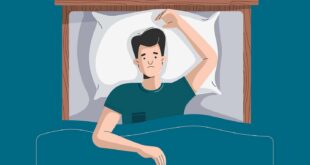Compare your diaries.
Since you are already keeping an Anxiety diary you can compare the two and see if there is a connection.
Do you sleep less after a bad day for Anxiety, or does the exhaustion mean that you sleep more?
When you are lying awake, are you troubled by anxious thoughts and/or physical symptoms of Anxiety?
Do you have dreams or nightmares?
Do you have some good nights and some bad, and are they connected to anything which has happened in the day? Or to the weather, temperature in the bedroom, time you go to bed, what you have eaten or
drunk before bedtime?
If you are troubled by anxious thoughts, either while you are settling down to sleep, or when you wake during the night, you will need to devise a strategy for dealing with them. In Part Three you will learn how Anxiety affects your thinking, and learn some techniques for reducing anxious thoughts. In the meantime, put the rest of the sleep programme in place so that you start to form good habits.
The next step is to see what changes you can make to improve matters. It’s largely a question of training yourself and, of course, being patient while you wait for the changes to take effect. Use the checklist below to make sure you’ve done as much as possible.
& Make sure your bedroom is as comfortable and peaceful as possible.
Don’t use the room for anything else – remove any TVs, computers and other distractions.
& Make sure the room is at the right temperature for you, and is well ventilated – open the window during the day to let fresh air in.
& Make sure the bed is comfortable, with clean warm bedding and a supportive mattress. (If you can’t afford a new mattress, try putting a board under the old one.)
& Make sure the room is dark enough for you – if the curtains or blinds let in light, then add linings or buy blackout blinds. If you prefer a little light that’s fine.
& Decide how long you need to sleep for, and add a little time for your preferred before sleep activity (reading, sex, relaxation etc). Tell yourself that is all the time you will spend in bed.
& Have a wind-down period of at least half an hour before you get ready for bed. Complete any chores or tasks, let phone calls go to voicemail and spend the time with some relaxing activity.
& Do not have a heavy meal within three hours of going to bed (make your supper something light). Avoid drinks containing caffeine and alcohol.
& If you can’t get to sleep within 30 minutes of going to bed or of waking up in the night, don’t stay in bed – get up and go into another room and do something calming and relaxing until you feel sleepy.
& If you are sleeping a lot, consider reducing the amount of sleep you have during the day. Do this slowly and allow yourself to get used to each reduction. Also try going to bed later and getting up earlier.
 Therapy for anxiety Therapy for anxiety
Therapy for anxiety Therapy for anxiety



